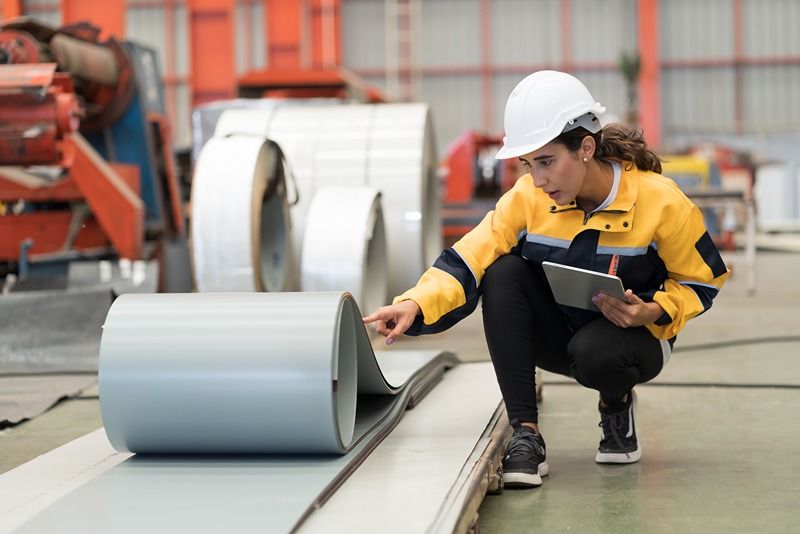Micro, small and medium enterprises (MSMEs) are the backbone of India's industrial sector, playing a crucial role in manufacturing, infrastructure, and engineering. Ensuring safety in industrial and machinery components is essential to prevent workplace accidents, maintain operational efficiency, and reduce downtime. Steel, known for its strength, durability, and resistance to environmental factors, is a key material that MSMEs can use to enhance safety standards.
How steel improves industrial safety
Steel is widely used in industrial and machinery applications due to its high tensile strength, impact resistance, superior ductility and long lifespan. By integrating high-strength steel into equipment and structures, businesses can minimise the risk of mechanical failure and create safer working environments.
Advanced High-Strength Steel (AHSS) and wear-resistant steel help machinery withstand heavy loads and repetitive movements, reducing fatigue-related failures. Stainless steel, known for its corrosion resistance and high strength, is especially useful in high-moisture or chemically aggressive environments, ensuring longevity and safety.
Key applications of steel in MSME operations
How steel improves industrial safety
Steel is widely used in industrial and machinery applications due to its high tensile strength, impact resistance, superior ductility and long lifespan. By integrating high-strength steel into equipment and structures, businesses can minimise the risk of mechanical failure and create safer working environments.
Advanced High-Strength Steel (AHSS) and wear-resistant steel help machinery withstand heavy loads and repetitive movements, reducing fatigue-related failures. Stainless steel, known for its corrosion resistance and high strength, is especially useful in high-moisture or chemically aggressive environments, ensuring longevity and safety.
Key applications of steel in MSME operations
- Enhancing structural strength Steel is widely used in machinery frames, enclosures, and support structures. Its high load-bearing capacity improves stability, reducing risks associated with vibration and impact forces.
- Worker safety barriers Steel safety barriers, machine guards, and enclosures help protect workers from direct contact with moving parts, reducing the chances of workplace injuries.
- Fire and heat resistance Steel offers superior fire resistance compared to other materials. This is critical in industries involving high-temperature operations, such as metal fabrication and chemical production.
- Corrosion protection Stainless steel and galvanised steel coatings prevent rust formation, making them ideal for humid or chemically harsh environments, particularly in coastal or high-exposure areas.
- Impact absorption and wear resistance Hard-wearing steel components, such as reinforced panels and heavy-duty machine parts, absorb impact forces, reducing damage and extending the lifespan of machinery.
How MSMEs can integrate steel for better safety
To enhance safety, MSMEs should choose the right steel grades and coatings based on their industry needs. Collaborating with reliable steel suppliers ensures access to high-quality materials designed for durability and compliance with safety standards.
Using precision manufacturing techniques, such as laser cutting and automated welding, improves the structural integrity of steel components, reducing the chances of defects that could compromise safety. Regular maintenance and inspections of steel-based industrial components help prevent sudden failures and extend equipment lifespan.
Future trends in steel for industrial safety
The steel industry is continuously evolving, with innovations improving safety and efficiency. High-strength low-alloy (HSLA) steel and nano-engineered coatings offer increased durability without adding excess weight. Smart steel components embedded with sensors allow real-time monitoring, enabling proactive maintenance and reducing operational risks.
Conclusion
Steel plays a vital role in improving industrial safety for MSMEs. By selecting the right steel materials, using advanced manufacturing techniques, and implementing preventive maintenance, businesses can reduce workplace risks and enhance efficiency. As steel technology advances, MSMEs that adopt these innovations will benefit from increased safety, reliability, and long-term sustainability.




 +91 7208055523
+91 7208055523
 Help & support
Help & support
